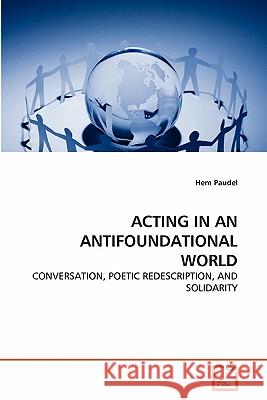Acting in an Antifoundational World » książka
Acting in an Antifoundational World
ISBN-13: 9783639349061 / Angielski / Miękka / 2011 / 192 str.
This book examines a central question that human beings face in an antifoundational world: If discourse communities create not only vocabularies but competing ways of seeing, how might we act in a reasonable way? It suggests answers to this question by discussing Rortys theory of language and truth. Rorty sets aside the foundationalist notion of metaphysical certainty with consensus beliefs achieved through conversation, which determines the utility of those beliefs to the community. Thus, Rorty changes the focus from what is right to what is helpful and changes the focus from what can be "proven" to what "works." The validity of the new vocabularies lies not in their correspondence to reality, but in their utility to point us towards reducing human suffering and immiseration, thereby building human solidarity. Hence, the use of Rorty provides a useful way of responding to the choices we confront in our lives and jobs because his emphasis on utility when considering differing "perceptions" and his emphasis on conversation, poetic redescription, and solidarity provides means of understanding and operating in the world.











